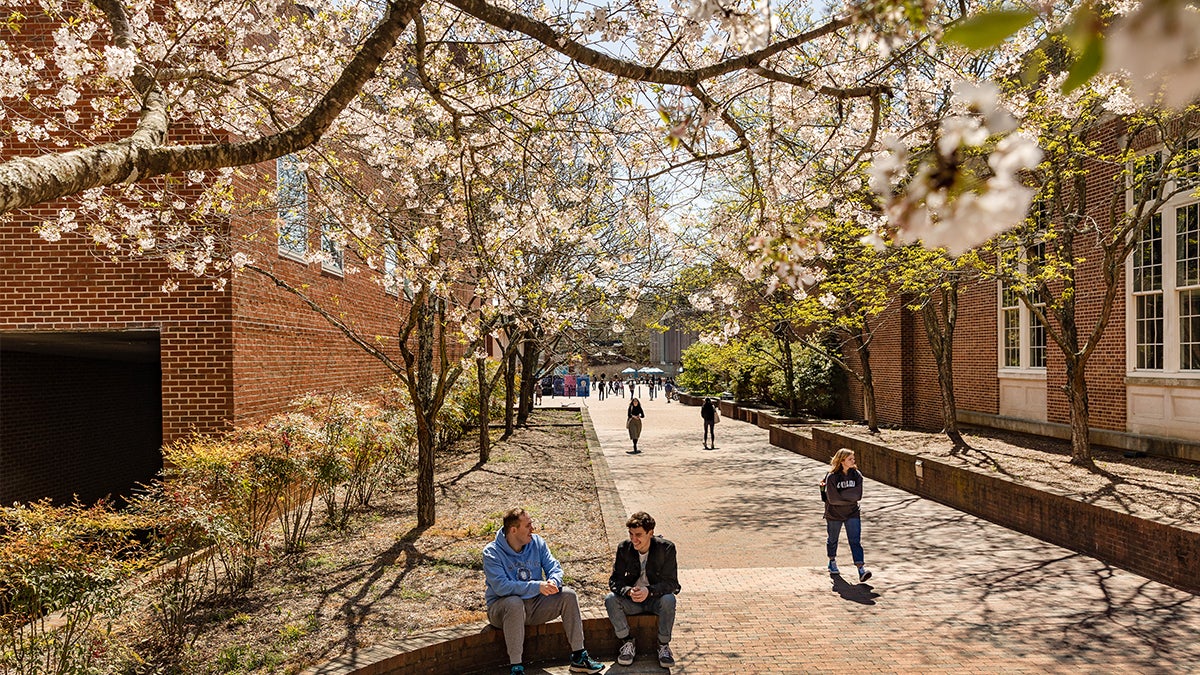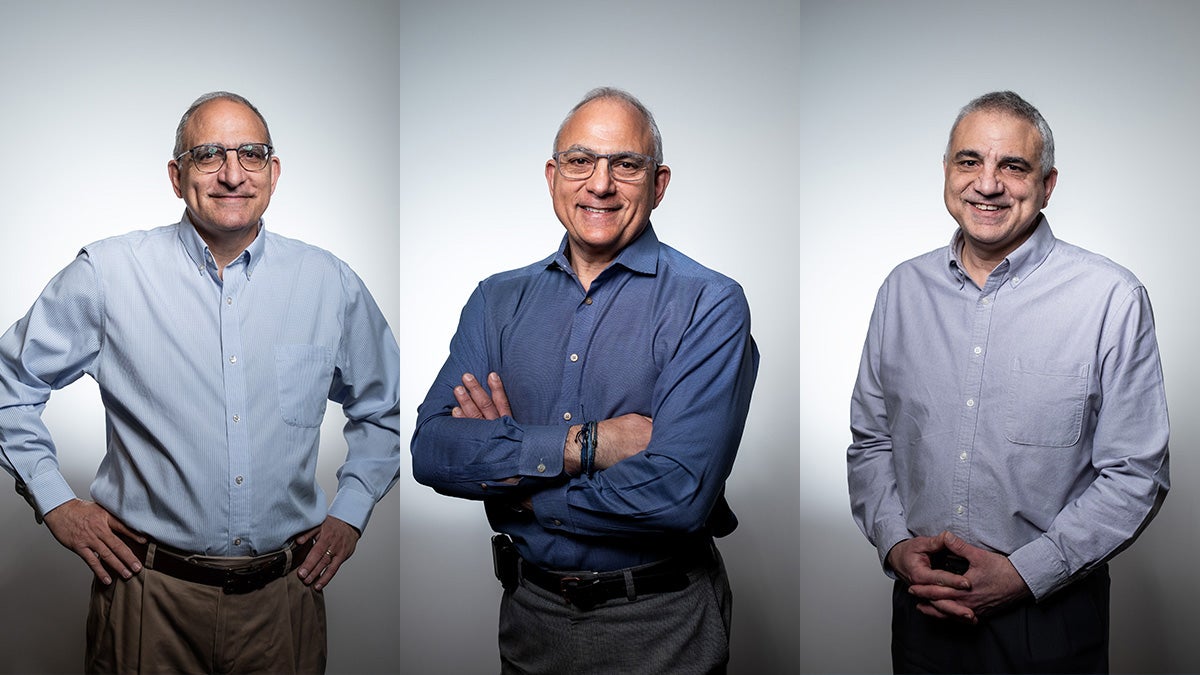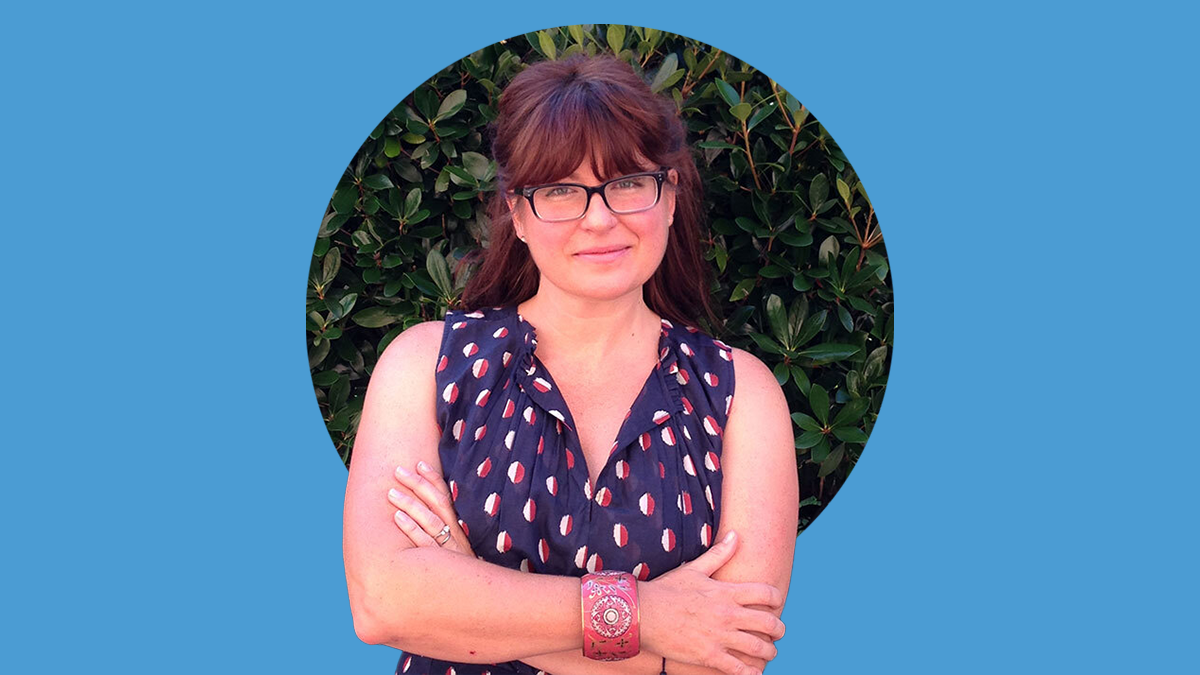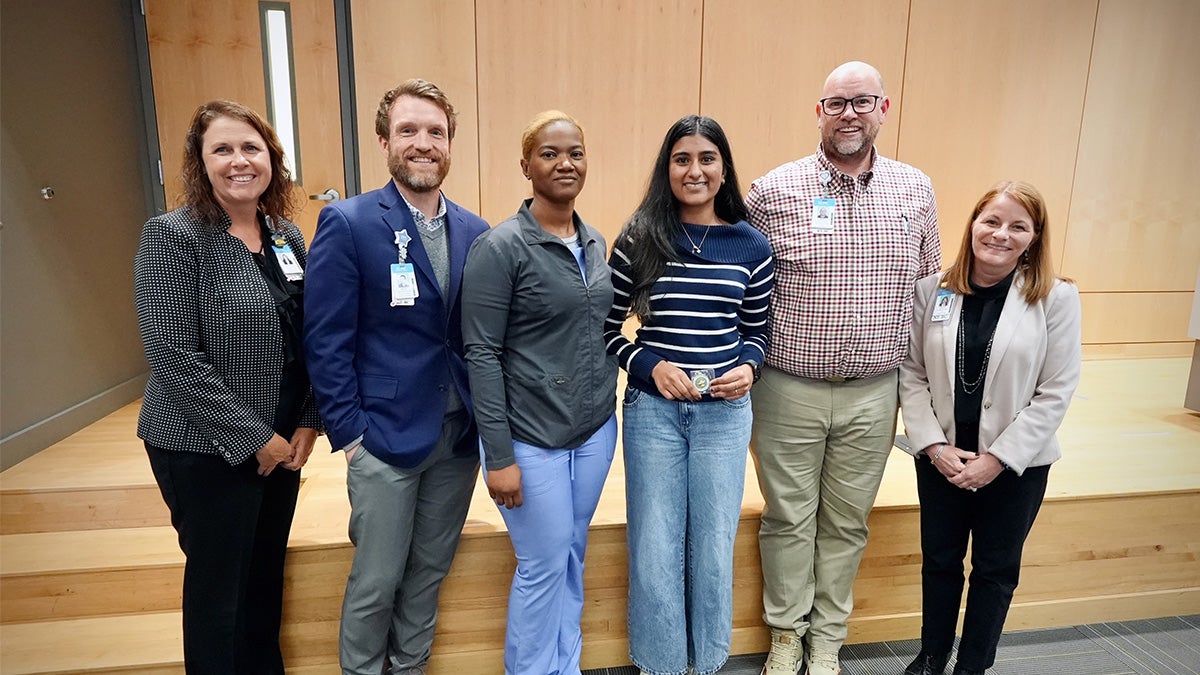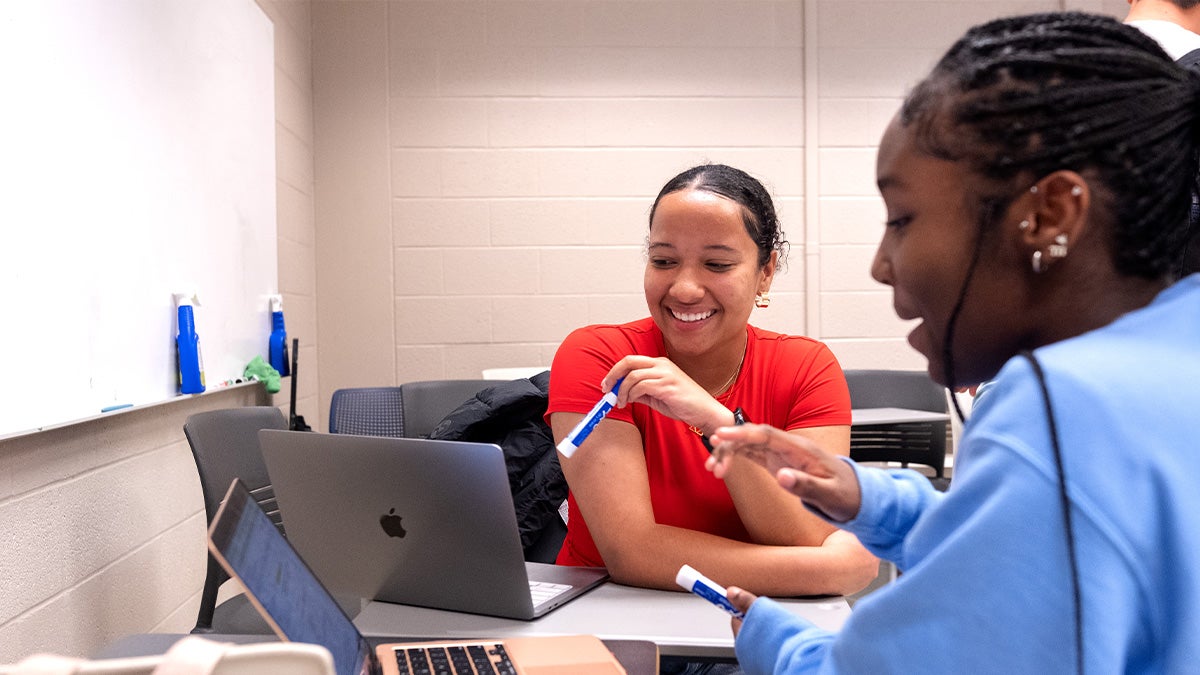School of Medicine launches new 9-month biomedical master’s degree
The program, created through The Graduate School and the Department of Cell Biology and Physiology, features hands-on research experience.
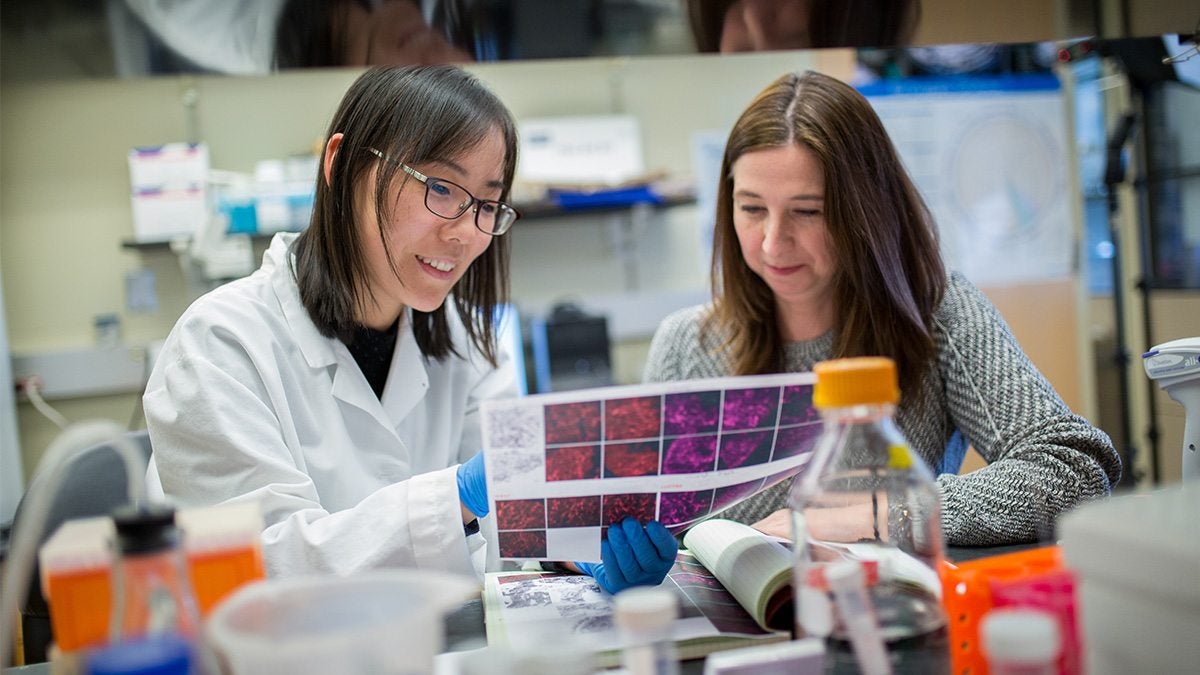
Some students want to chase their scientific curiosity or bolster their experience before exploring career options. The new nine-month biomedical, nonthesis Master of Science in cell biology and physiology in the UNC School of Medicine will help them do that.
“This is the kind of program that I would have really benefited from as an undergraduate graduating from UNC with a biology degree and not certain of my career path,” said Emily Moorefield, an associate professor in the medical school’s cell biology and physiology department. Moorefield leads the committee of faculty and administrative personnel developing the new program.
Other master’s degree programs in the School of Medicine are designed for students interested in entering specific health professions such as nursing or dentistry. Some biomedical sciences departments also offer opportunities to laboratory technicians to earn a master’s degree on a case-by-case basis. The new MS program, launched in collaboration with The Graduate School, is the first at Carolina to offer a full generalized biomedical sciences curriculum to a cohort of incoming students.
“This program is for students who are questioning their career path, need a bit more time and information as to what career options are available, or didn’t get the opportunity to do research as an undergrad,” said Kristen Scherrer, an assistant professor in the cell biology and physiology department and director of graduate studies for the master’s program.
The program provides students the unique opportunity to gain hands-on experience in translational research laboratories without requiring a final thesis project. “We have an interdisciplinary department with access to 90 different research labs,” Scherrer said.
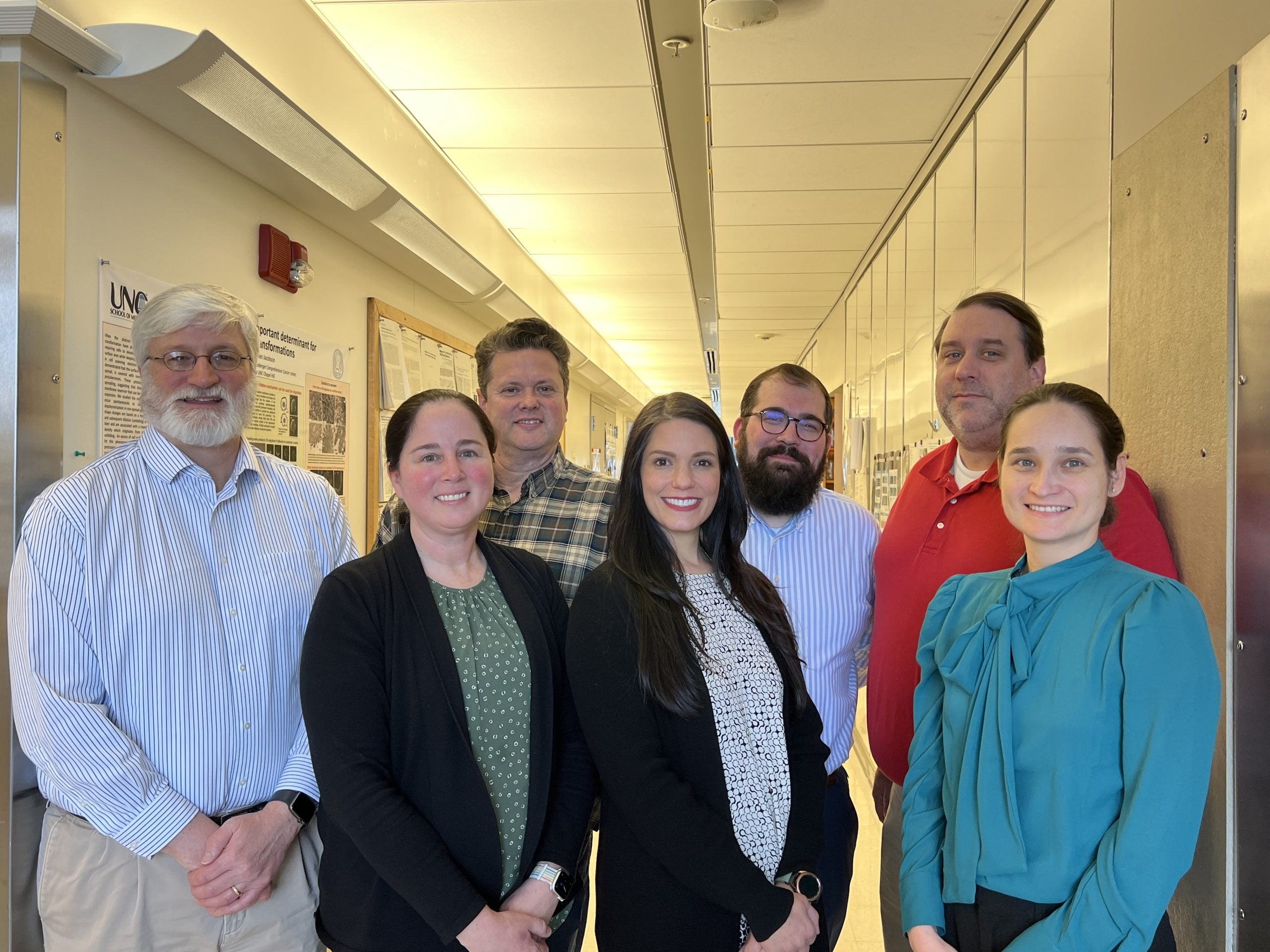
The faculty and personnel who developed the new program have expertise in graduate and medical education, genetics, neuroscience, immunology, cardiovascular biology and other disciplines. (L-R back row) Kurt Gilliland, Jay Brenman, Zachary Williamson and Matthew Billard. Pictured and front: Emily Moorefield, Kristen Scherrer and Tiffany Garbutt. (Submitted photo)
Students have options other than research, though, and will preview various biomedical career options in professional development classes.
“We want to inspire our students to chase their scientific curiosity and, after graduation, boost the economic and societal benefits of the biomedical research industry,” said Kathleen Caron, department chair.
The biopharmaceutical industry in North Carolina grew by 43% in just three years and will require an estimated 8,000 new workers by the end of 2026. “Our goal is to train the next generation of scientists to meet the many needs of N.C.’s rapidly expanding biomedical industry,” Caron said.
The program prepares students for medical and other health professional schools, doctoral programs and academic and industry careers. Faculty will support and advise students on how to achieve their unique career goals in the biomedical workforce.
The strength of the program is its educators. “We’re real people who were once in their shoes trying to figure out what to do after undergrad. We care and genuinely want students to succeed,” Moorefield said.
The program lasts just nine months, long enough for students to gain new skills and prepare for their future career goals without taking too much time. “Of course, they will get a great education,” Scherrer said. “But the exciting piece is watching what they do next, and hopefully we help influence that.”
Apply for the Master of Science in cell biology and physiology by May 15.
